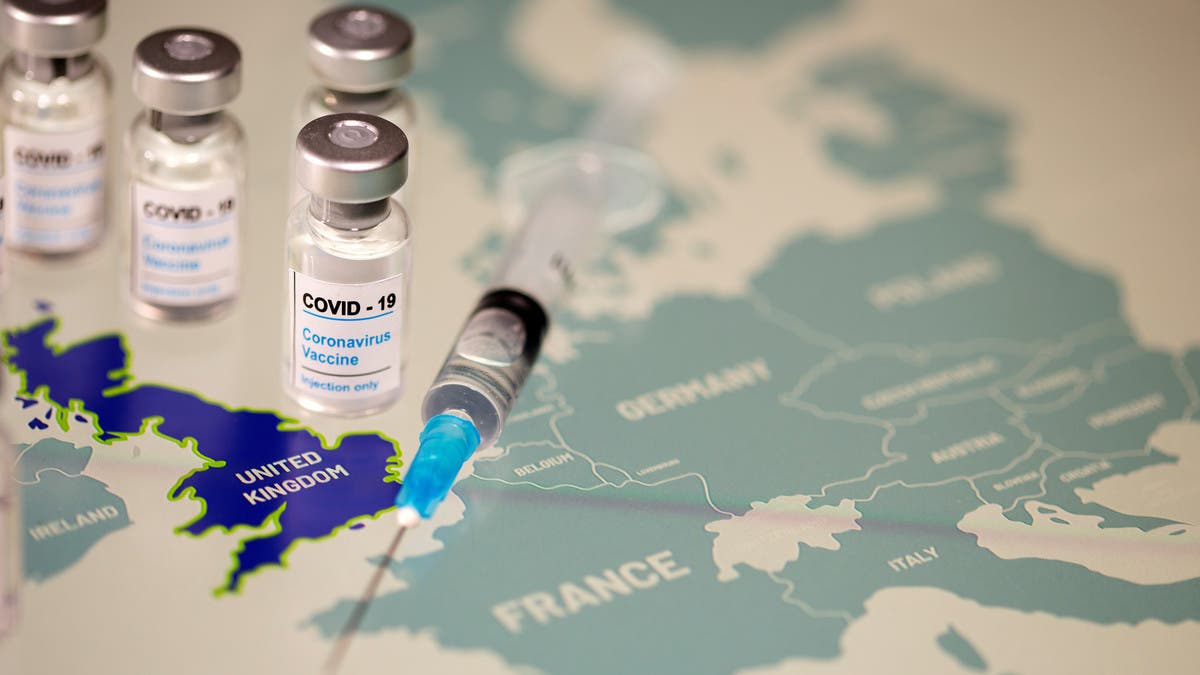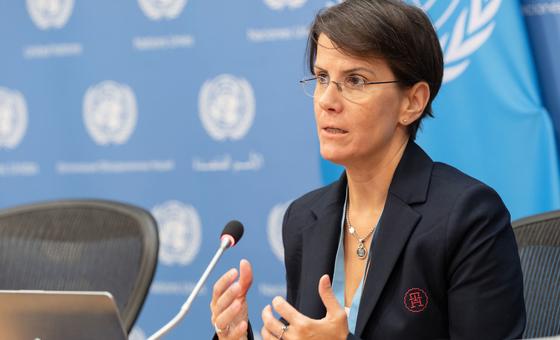Health authorities across the UK simplified COVID-19 testing requirements on Wednesday, a move designed to cut isolation times for many people and that may ease the staffing shortages that are hitting public services from hospitals to garbage collection amid an omicron-fueled surge in infections.
In another effort to bolster the economy, Prime Minister Boris Johnson told the House of Commons that pre-departure tests for people traveling to England will no longer be required because the omicron variant is so prevalent that travel restrictions meant to contain its spread are now meaningless. The tests had discouraged people from traveling overseas for fear they would get stuck abroad.
The moves came as the Cabinet backed Johnson's decision not to impose any further restrictions despite record COVID-19 infection levels. With indications that omicron is less severe than earlier variants and widespread vaccination curtailing serious illnesses, the government is sticking with light-touch controls imposed in mid-December.
“All these measures are balanced and proportionate ways of ensuring we can live with COVID without letting our guard down," Johnson told lawmakers.
The UK Health Security Agency said that from Jan. 11 people in England who test positive using a rapid lateral flow test will no longer need to confirm the result with a PCR test if they are asymptomatic.
The temporary move, which also was used early last year, will cut the time people who record a positive lateral flow test but don't have COVID-19 symptoms need to self-isolate. They will no longer need to wait for the result of a PCR test and then begin another seven days of isolation.
For more coronavirus news, visit our dedicated page.
“While cases of COVID continue to rise, this tried-and-tested approach means that LFDs (lateral flow devices) can be used confidently to indicate COVID-19 infection without the need for PCR confirmation," said Jenny Harries, the agency's chief executive.
Health authorities in Scotland, Wales and Northern Ireland quickly followed suit, with Northern Ireland making the change immediately. Scotland and Wales plan to introduce it starting Thursday.
Epidemiologist John Edmunds, a professor at the London School of Hygiene & Tropical Medicine, said the move made sense.
“When the prevalence is high, and it is incredibly high at the moment, almost everyone who tests positive with a lateral flow test will be a true positive," Edmunds said. “There is really no need to confirm this with a PCR, a step that not only wastes time but costs a lot of money and uses up laboratory resources that could be better used elsewhere."
But he cautioned that the change will mean authorities have less data about the spread of different variants as PCR swabs are used for genotyping and sequencing to identify different mutations. The change also will mean that daily updates on confirmed cases — which come from PCR tests — "may need more careful interpretation,” he said.
Confirmed new infections over the last seven days jumped 40% from a week earlier, according to the latest government statistics.
The leader of the opposition Labour Party, Keir Starmer, tested positive for the coronavirus and missed the chance to grill Johnson about the government’s COVID-19 policies on Wednesday.
A string of National Health Service local organizations have declared "critical incidents" in recent days amid staff shortages. Hospitals in the Greater Manchester region said they would pause some non-urgent surgeries amid the rising impact of COVID-19 and worker absences.
Gillian Keegan, a junior minister at the UK Ministry of Health, acknowledged the strain in an interview with the BBC.
“Right now, they are under extreme pressure with the omicron variant, with the number of positive cases and the increase in hospitalizations, and at this point in (winter) time when they always have extreme pressure," Keegan said.
There have also been cuts to train services and garbage is piling up on some city streets because of sanitation staff shortages.
NHS Confederation Chief Executive Matthew Taylor told the BBC he would support the new testing regime if scientists deem it safe.
“Hospitals who have declared critical incidents, for example, are essentially reaching out to staff who are on leave, on rest days or even recently retired and asking them to come back to wards, so the situation is desperate," Taylor said. "Any way of getting staff back into hospital is a good thing."
An ambulance service in northeast England began advising patients with non-life-threatening conditions over the New Year's weekend to ask a relative to drive them to a hospital as waiting times for ambulances rose because of staff shortages and extra demand.
“It is still taking us too long to get an ambulance to patients. Unfortunately, due to this, patients remain at risk, which is unacceptable," North East Ambulance Service medical director Mathew Beattie said Wednesday.
He stressed, however, that "we would never ask anyone to drive themselves to hospital with a life-threatening illness.”
Opposition politicians and some public health experts have pressed the government to tighten restrictions on business and personal interactions as omicron sweeps across the country. Johnson has resisted their calls after almost 100 of his party’s lawmakers opposed mask requirements and other infection-control measures imposed last month.
For the latest headlines, follow our Google News channel online or via the app.
Read more:
COVID-19 patients showing less severe symptoms: UK vaccine minister
UK sets up ‘surge hubs’ in hospitals as omicron cases rise
UK government seeks to mitigate workforce disruption from omicron

 World2 years ago
World2 years ago
 World2 years ago
World2 years ago
 Entertainment7 years ago
Entertainment7 years ago
 World7 years ago
World7 years ago
 Entertainment7 years ago
Entertainment7 years ago






